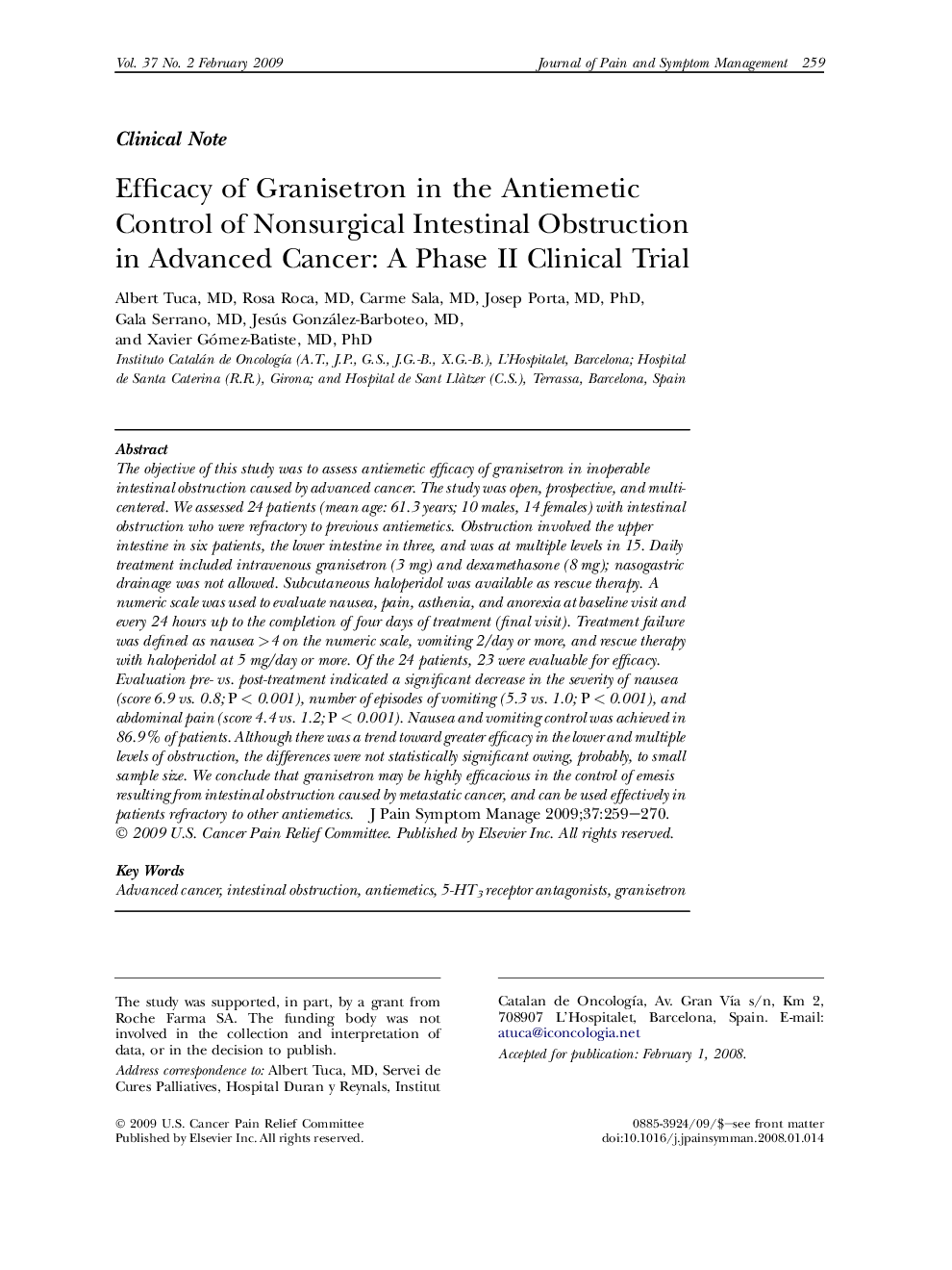| Article ID | Journal | Published Year | Pages | File Type |
|---|---|---|---|---|
| 2724662 | Journal of Pain and Symptom Management | 2009 | 12 Pages |
The objective of this study was to assess antiemetic efficacy of granisetron in inoperable intestinal obstruction caused by advanced cancer. The study was open, prospective, and multi-centered. We assessed 24 patients (mean age: 61.3 years; 10 males, 14 females) with intestinal obstruction who were refractory to previous antiemetics. Obstruction involved the upper intestine in six patients, the lower intestine in three, and was at multiple levels in 15. Daily treatment included intravenous granisetron (3 mg) and dexamethasone (8 mg); nasogastric drainage was not allowed. Subcutaneous haloperidol was available as rescue therapy. A numeric scale was used to evaluate nausea, pain, asthenia, and anorexia at baseline visit and every 24 hours up to the completion of four days of treatment (final visit). Treatment failure was defined as nausea >4 on the numeric scale, vomiting 2/day or more, and rescue therapy with haloperidol at 5 mg/day or more. Of the 24 patients, 23 were evaluable for efficacy. Evaluation pre- vs. post-treatment indicated a significant decrease in the severity of nausea (score 6.9 vs. 0.8; P < 0.001), number of episodes of vomiting (5.3 vs. 1.0; P < 0.001), and abdominal pain (score 4.4 vs. 1.2; P < 0.001). Nausea and vomiting control was achieved in 86.9% of patients. Although there was a trend toward greater efficacy in the lower and multiple levels of obstruction, the differences were not statistically significant owing, probably, to small sample size. We conclude that granisetron may be highly efficacious in the control of emesis resulting from intestinal obstruction caused by metastatic cancer, and can be used effectively in patients refractory to other antiemetics.
